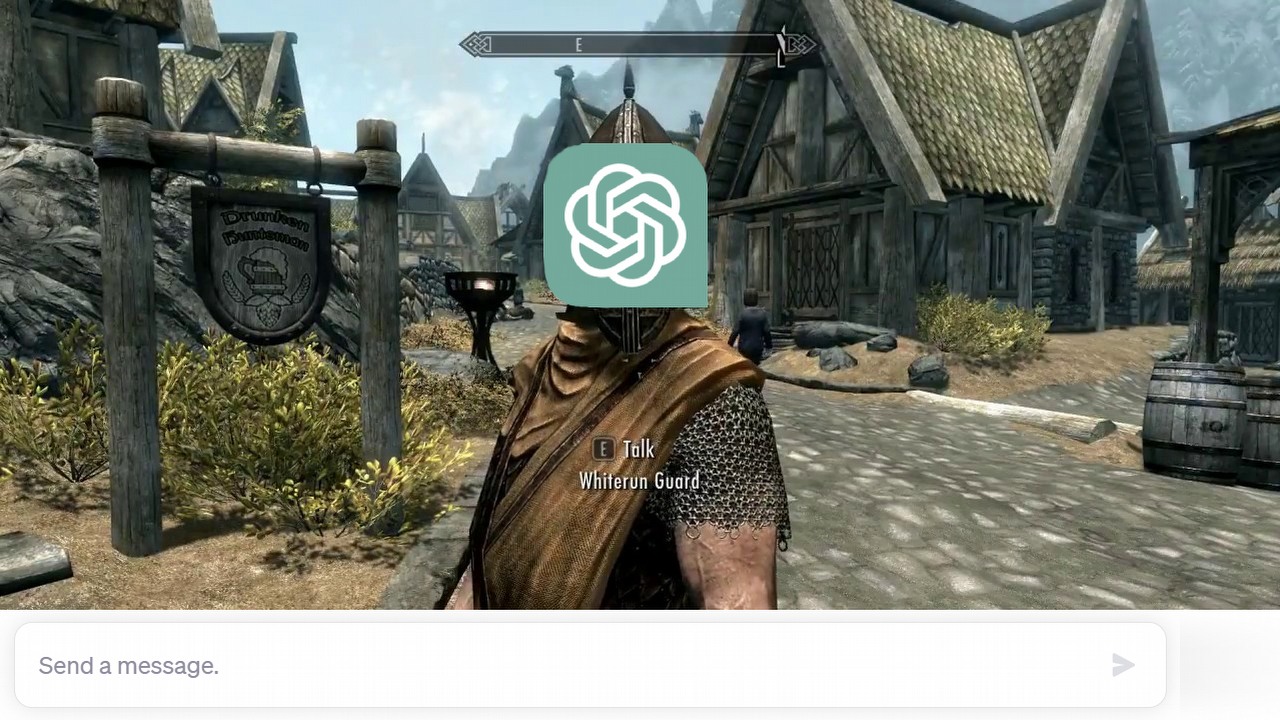Dragon Age Devs Skeptical About AI in Games: 'We're Gonna Waste a Lot of Time'
David Gaider commented on the development of AI in the context of writing video game plots. In his opinion, screenwriters need not fear for their jobs.

Considering the sudden increase in the availability and popularity of AI-based software, many have begun to predict a future in which the technology will put many people out of work - including in gamedev. Most of us know how impressive graphics the artificial intelligence is able to create in seconds, but is it just as good at writing compelling stories?
Commenting on an article published by The Guardian, humorously titled No more ‘I took an arrow to the knee’: could AI write super-intelligent video game characters?, David Gaider - co-creator of the plot and world of Dragon Age - shared his experiences and thoughts on the topic of artificial intelligence.
Attempts were made before
Beginning his argument on Twitter, Gaider admitted that the Canadian studio responsible for Dragon Age has long since had its first approach to generating dialogues with the help of AI.
"Ah, yes. The dream of procedural content generation. Even BioWare went through several iterations of this: "what if we didn't need every conversation to be bespoke?" Unlimited playtime with dialogue being procedurally created alongside procedural quests!"
The developer stresses that the video game industry had been experimenting with artificial intelligence (at various stages of its development) for years before it became so readily available to everyone.
This experience is said to have led him to skepticism, lacking in people looking at the industry from the sidelines, who have just been swayed by chatGPT and similar solutions.
"Each time, the team collectively believed - believed down at their CORE - that this was possible. Just within reach. And each time we discovered that, even when the procedural lines were written by human hands, the end result once they were assembled was... lackluster. Soulless."
None of the attempts witnessed by the writer yielded satisfactory results.
Do dialogues need "human touch"?
Continuing his argument, Gaider explains what is the main problem with this issue. The developer does not doubt AI's ability to produce correct texts on a massive scale, but in his opinion, it is not enough for video games.
"Was it the way the lines were assembled? Did we just need more lines? I could easily see a team coming to the conclusion that AI could generate lines specific to the moment as opposed to generic by necessity... an infinite monkeys answer to a content problem, right? Brilliant!
In my opinion, however, the issue wasn't the lines. It was that procedural content generation of quests results in something *shaped* like a quest. It has the beats you need for one, sure, but the end result is no better than your typical 'bring me 20 beetle heads' MMO quest," quest.
Procedurally generated dialogues and quests lack the depth and sublimity, which can be taken care of by a scriptwriter with flawless knowledge of the game world. However, is this just a developers' whim, or something the players really care about?
"Is that what a player really wants? Superficial content that covers the bases but goes no further, to keep them playing? I imagine some teams will convince themselves that, no, AI can do better. It can act like a human DM, whipping up deep bespoke narratives on the fly.
And I say such an AI will do exactly as we did: it'll create something *shaped* like a narrative, constructed out of stored pieces it has ready... because that's what it does. That is, however, not going to stop a lot of dev teams from thinking it can do more. And they will fail."
Gaider doesn't believe that AI technology will ever be able to fully match the creativity and enthusiasm that even the least experienced game developers have.
Future of AI storytelling according to Gaider
Based on his experiences and the conclusions drawn in the thread, David Gaider predicts with great certainty what we can expect in the future on the topic of using AI for storytelling in video games.
"Sure, yes, yes, I can already see someone responding "but the tech is just ~beginning~!" Look, if we ever get to the point where an AI successfully substitutes for actual human intuition and soul, then them making games will be the least of our problems, OK?
Final note: The fact these dev teams will fail doesn't mean they won't TRY. Expect to see it. It's too enticing for them not to, especially in MMO's and similar where they feel players aren't there for deep narrative anyhow. A lot of effort is going to be wasted on this."
Gaider, who decided to take some time to comment on The Guardian's article, currently co-manages the studio Summerfall Studios, which is working on Stray Gods.
According to the announcement the title is to be a musical RPG, and all of the studio's upcoming games are to be based primarily on elaborate storylines. Let's hope Gaider's passion for deep narrative and hatred of superficial AI will manifest itself in his upcoming projects.
0

Author: Sonia Selerska
Began her professional writing adventure for Gamepressure.com in 2022, but she has always been interested in all forms of the written word. A student of Film and Multimedia with a specialization in Game Design and Development, deeply follows the blurring boundary between these two worlds. Sometimes, embarrassingly, appreciates style over substance. In the case of media, more often than not, goes to extremes; she can never choose between documentaries and horror films, and cozy games, life simulators, and animations. You will find her playing old-school consoles and indie gems rather than AAA titles. Devotes her free time to her love of fashion and art in a broader sense. Believes that the plot is the most crucial element of a game, and the most compelling stories are the ones inspired by everyday life.
Latest News
- End of remote work and 60 hours a week. Demo of Naughty Dog's new game was born amid a crunch atmosphere
- She's the new Lara Croft, but she still lives in fear. Trauma after Perfect Dark changed the actress' approach to the industry
- „A lot has become lost in translation.” Swen Vincke suggests that the scandal surrounding Divinity is a big misunderstanding
- Stuck in development limbo for years, ARK 2 is now planned for 2028
- Few people know about it, but it's an RPG mixing Dark Souls and NieR that has received excellent reviews on Steam, and its first DLC will be released soon


